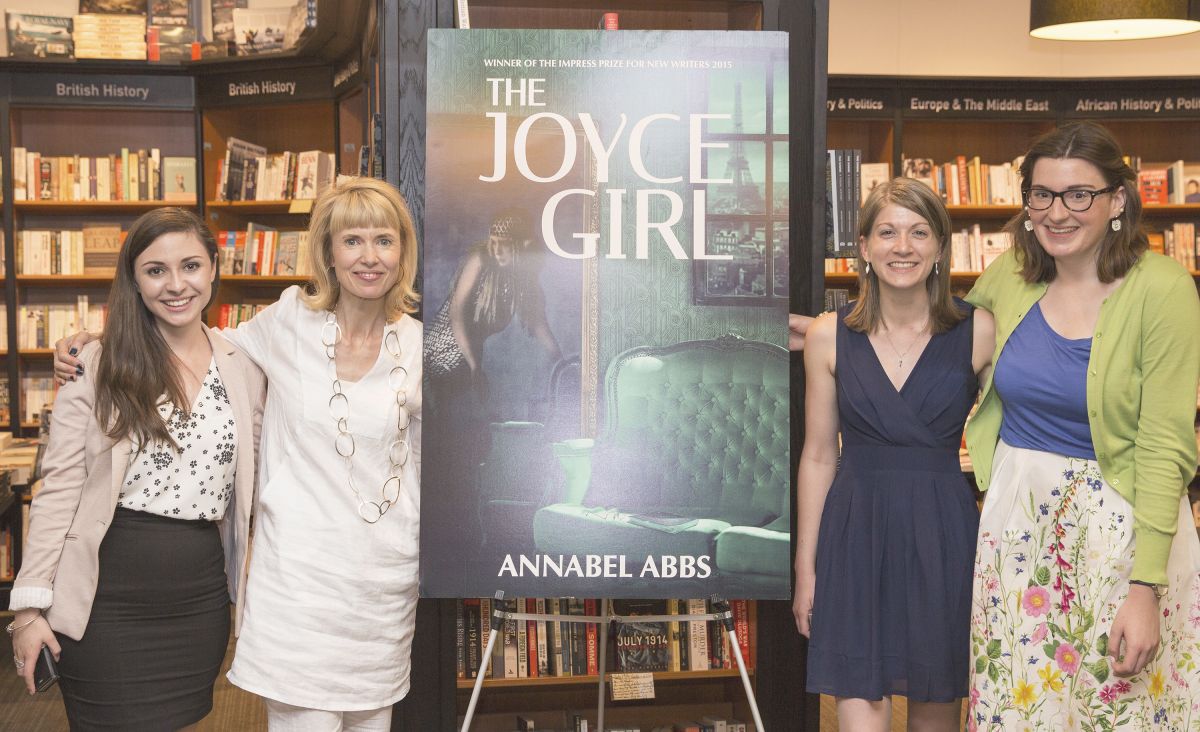You are viewing your 1 free article this month. Login to read more articles.
Devon indie list is dressed to Impress
The Impress Prize for New Writers is at the heart of all activity for Devon-based indie publisher Impress Books, with the new talent the prize unearths bolstering the list’s publishing programme.
Now in its 12th year, the prize seeks to discover and publish new writers and benefits the publisher as much as it does the budding author, because the winner signs a contract with Impress Books.
The Joyce Girl by Annabel Abbs, winner of the award in 2015, was one of the publisher’s bestselling titles in 2017, and its release was a “turning point” for both the prize and the press. The novel was reviewed in the Observer and was one of the Guardian’s Readers’ Picks of 2016; it was also published in France, Spain, Germany, Turkey, Russia and South America. Abbs has since signed with Hachette UK for her second book.
The prize had a “phenomenal” increase in submissions in the following year, which Impress attributes partly to the success of The Joyce Girl, and partly to the expansion of marketing and advertising around the prize. The number of entries also increased again in 2017. “The prize is going from strength
to strength. We often gain some of our best titles from the prize,” says commissioning editor Julian Webb.
According to the press, the prize is a manifestation of its core aims: to bring fresh writing talent to a broad audience. “The sheer fact that we keep receiving more and more entries every year means there is still a market for a small press to provide a potentially life-changing opportunity for a writer,” says Sarah Sleath, marketing and publicity manager.
Publisher Richard Willis says that the potential of the prize is shown in the fact that Knopf and Bloomsbury bought US and UK rights, respectively, to 2010 winner, Homesick by Roshi Fernando. Last year’s prize was won by The Day’s Heat by Roberta H George.

Annabel Abbs (second from left) launched her Impress Prize-winning title The Joyce Girl in 2015; she has since signed with Hachette UK
Alongside using the prize as a means to discover writing talent, Impress has also been commissioning books across a range of genres—with themes that “really resonate among readers”—including historical fiction and YA. The press recently published Widdershins by Helen Steadman, a “fantastic addition” to its historical fiction list, and last year launched its YA list with Tree Magic by Harriet Springbett. Impress publishes 10–15 titles a year, and is looking to grow this over the next five years.
Although proud of its publishing, the publisher envies the “privileged” access larger publishers get to bookshops and markets, and laments how indie publishers are “financially shut out of many conversations that make a book successful”, including space in bookshops, media coverage and prize shortlists. Webb says: “With the right exposure at the right time, our books can do very well indeed. But with most of the band- width taken up by the big beasts, indies like ourselves often struggle to be heard.”
Commissioning editor Rachel Singleton adds that the publisher is often precluded from prize attention as a consequence of the fees that many awards charge for a book being shortlisted. “If a book were to reach a shortlist for a prize, the ‘contribution’ publishers are asked to pay can be £5,000,” says Singleton. “While you are likely to recoup the money in sales, these kinds of requests ask the independent publisher to gamble the financial success of its business on a prize. Book publishing can sometimes be about the amount of money that can be paid upfront, rather than on the quality of the work that is being published.”
However, Webb concedes that all publishers are navigating their way through a flooded marketplace and increased demand for new and innovative books. “We have faced these challenges by investing more time, money and energy into the design of our books, as well as continuing to build a network of contacts within the industry with whom we can share our output”, he says.
A key focus for the press at the moment is the possibility of expanding into global markets, with its historical fiction list, for example, performing “extremely well” in Australia. The press is also seeking to make its books available as audiobooks, but says this is “notoriously difficult for small indies to achieve”.
Plans for this year include publishing another YA title, setting up a YouTube channel to grow its audience and increasing the list’s presence in physical bookshops. The latter desire is a “particular challenge of being an independent publisher”, although the publisher says it is beginning to see an improvement in bookshop buy-ins after it started working with sales representatives.










